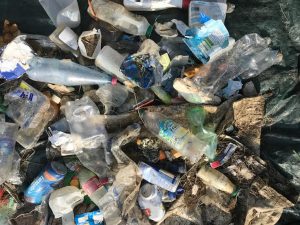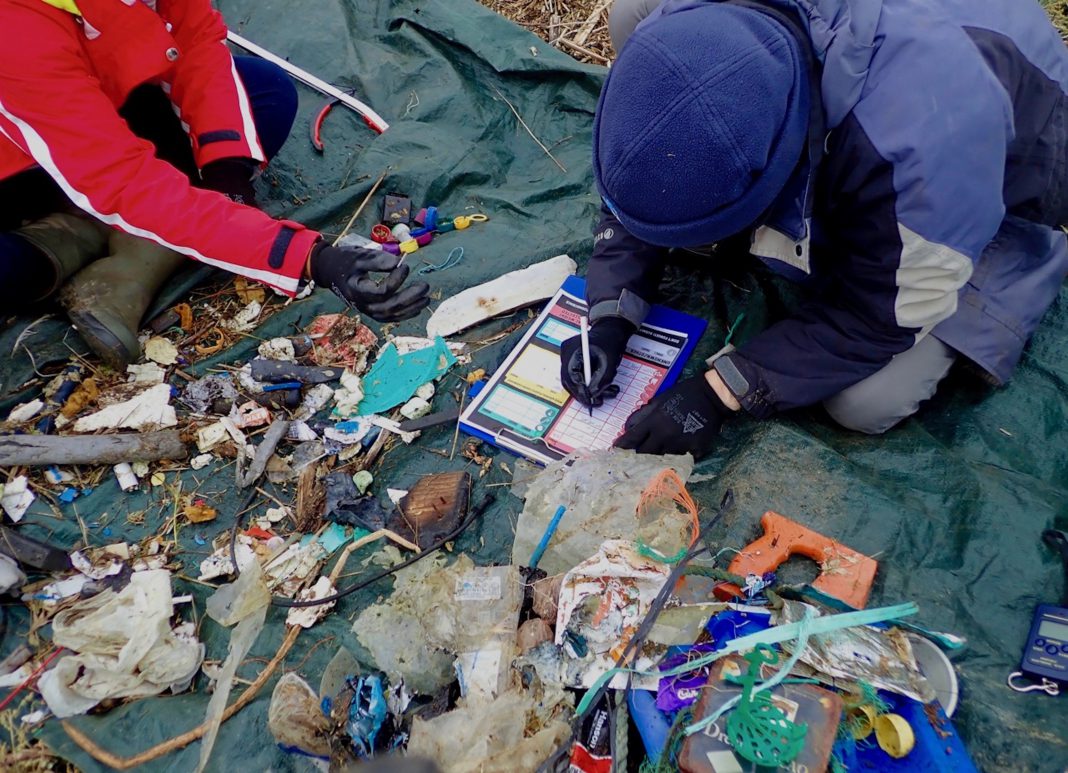Below follow extracts from the latest newsletter from Strandliners. Andy Dinsdale would like to give credit to all participants who have helped clean up the rivers and collect the debris left by unthinking people.
In total 4,375 metal, glass & plastic bottles and cans have been recorded BY YOU!
We wish to send a huge thank you to everyone who took the time and trouble to send in details of the drinking containers found “lost” in our environment. All of the records have been used as part of the response to the deposit return scheme (DRS) consultation. The response is summarized on the Strandliners website here. Thank you to all who responded individually to the consultation, for taking the time to stand up for our environment.
Your records were used by Strandliners, and also in the official response by the Marine Conservation Society, Keep Britain Tidy, Surfers Against Sewage, Greenpeace, RSPB and the Countryside & Wildlife Trust.

Without your helpful input there may not have been any real grassroots evidence of the current situation regarding mismanaged waste. We anticipate that a fully inclusive DRS (Decision Review System) will reduce the amount of “lost” drinking containers by 90% if other European schemes are anything to go by.
If you have not subscribed to the Strandliners news sheet you can click here.
Or join us and become a full member of Strandliners – you can click here.
Lastly, if anyone has any feedback about the ‘Bottles From…’ campaign, whether about the process, – Was it easy? Did you feel a greater sense of “doing something”? Please do say as your thoughts can direct any future campaigns.
If we run another campaign to highlight certain areas of mismanaged waste, what would you like to see? Consider how easy/difficult the recording might be? What are the worst items discovered (in your opinion)?
Send in your thoughts here.
Once again, thank you for your time and effort.
Future events
With the COVID-19 guidelines changing we are beginning to organize events. There may still be changes as we need to continually assess the situation, but here is what is planned so far.
- Dungeness (Jury’s Gap, Camber end) – Marine Conservation Society survey. 30 to 45 minute walk on shingle (each way) and a 2/3 hour survey activity. This will involve a clamber over a 4 ft wall and boulders on the way out, but up steps on return! Please email strandlinersevents@gmail.com to book a place.
Saturday July 3, 8:30am to 12:30pm - Camber (walk from Harbourmasters yard)
– please email strandlinersevents@gmail.com to book a place.
Probably 3 or 4 Sunday evenings, 6pm meet for a 6.30pm start, returning 8.30/9.00pm to car park.
Microplastic surveys at Cuckmere and Holywell, Eastbourne – May 2021
These microplastic and mesoplastic surveys attracted participants from all over East Sussex and were a great success in passing on awareness around primary and secondary micro and meso plastics.
We were part of a larger event on each day with the Marine Conservation Society, Compass Arts and Water Week. And both days were part of the Eastbourne Spring Water Festival. The aim is to focus on knowing what the plastic pollution really is.
Image Credits: Sandy Spencer , Sandy Spencer/Andy Dinsdale .




Having met the Strandliners at Pett level and as a weekly visitor to the beach I was rather puzzled by the large bags of rubbish that appeared after an hour and a half. My wife and I pick up any rubbish we find and that normally fills one large pocket of my coat. Do they bring their own rubbish with them to make a point? The beach at Pett is one of the cleanest for miles and most of the rubbish is fishing line and bits of fishing net apart from the rubbish left by out of towners.
Hi Nick. I am the founder of Strandliners. Thank you for your thoughts but I do need to clarify some of your comments though.
1 – If we met at Pett Level in May, the bags that appeared were from a major weeklong project where local volunteers and experienced Strandliners volunteers had been clearing and sorting the rubbish (marine debris, marine litter, trash – call it what you will, it is the same – mismanaged waste) from behind the berms at Fairlight Cove. These bags were picked up by the Pett Level Independent Rescue Boat and delivered to the slipway for collection the next day by Biffa. This is the second such project and so far over 150 bags of over 550kg of mismanaged waste has been cleared from the short stretch, the results will be added to last year’s event on our website. https://strandliners.org/events/
2 – But if you wonder why Pett Level (less than a mile away) is so clean, it could be because it is more accessible and so many beach visitors are now picking up rubbish. This is great for us and the environment for a short while, but it leads us to think the marine litter problem is improving. So to know the real picture of plastic pollution in the marine environment we need to identify and record.
3 – How do we know where the rubbish has come from? Generally the accepted figure is 60% to 80% of all the rubbish in the coastal seas comes from land (UN estimates from scientific research). But the only way to know is to collect data through identification and recording individual items. Over time a data rich picture of environmental pollution can be built up enabling a greater chance to lobby for change.
4 – And now your comment “Do they bring their own rubbish with them to make a point”. I believe all the volunteers who have spent many hours exerting a lot of energy and time to help our environment may find it quite funny if they are not insulted!
5 – I invite you to a Strandliners event in the future to participate and discover for yourself how we work.
Good reply Andy. As one of those volunteers I concur!
I bring friends from London to the beach regularly and they often comment that it seems clean. It’s only when I start picking up small fragments and the larger bits that they start to notice quite how much, particularly plastics, is washed up. We need to raise awareness of the plastic crisis in our oceans, as Strandliners are doing, so thank you. I didn’t know what a nurdle was until I got involved! Now I find them everywhere.
I could hardly believe my eyes when I read the absurd suggestion that we take our own rubbish to surveys. I work hard for Strandliners, something that it is a pleasure and a privilege to do, alongside working full time and studying for a university degree.
Do you really believe that we walked 30-45 minutes across shingle, over boulders, through rock pools and under crumbling cliffs, carrying 150 bags of rubbish, weighing 550 kg, to Pett Level just so the lifeboat could bring it back again? Do you really think we took 750 kg rubbish to the River Rother, just so we could haul it back again? I cannot even imagine where we would have even found such waste.
Last Saturday I led a wonderful group of volunteers on a survey at Jury’s Gap, which involved a half hour walk in the rain to even reach our survey site. We collected 60 kg of rubbish from our 100-metre survey site before sorting through every piece. For it is only by recording and sharing the data with larger organisations that we can begin to put steps in place to stop it.
Your comment was like a slap in the face to me and to all of the wonderful people who work so hard to remove plastic pollution from our beaches and riverbanks and sort through the mountains of human detritus.
If you think picking up the odd crisp packet is a beach clean, then I challenge you, Nick, to come on one of ours.
As a fellow Strandliner I have learned through hands on experience at many beach clean ups with Andy Dinsdale and fellow Strandliners that there is alot more Marine litter out there than you think, it’s not just the obvious large stuff, but smaller just as deadly to Marine life stuff, and it all fills bags. With training and knowledge comes experience and Strandliners has taught me just that over the 5 years I have been a member with my husband, maybe open minds, and a trust in the honest process of awareness will educate people who stand in disbelief at what we do, and question our approach. X
I stand humbly corrected and I apologise for any offence caused. I had a chat with Margo, one of your members, and she explained it all to me . Once again please forgive me.
Sadly, it isn’t just the litter we can see, but the beaches and banks of the River Rother are full of nurdles and bio beads, tiny beads of plastic that also pollute our planet. When I explained to Nick about this and also the marvellous work that the Strandliners do, he realised the scale of the problem. Well done Strandliners, and lets hope Nick joins you!